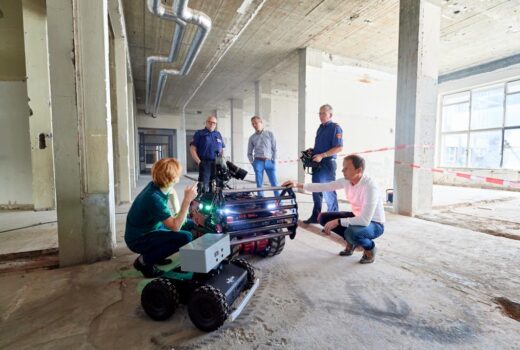Minder geld voor ITER

In 2007, the EU started a collaboration with 6 other nations(China, India, US, Japan, Korea and Russia) to answer a simple buturgent question: How will future generations create sustainableenergy once fossil fuels are over?
Clean, abundant energy through fusion
ITER (International Thermonuclear Experimental Reactor) shouldgive the answer. Basically, ITER is a giant fusion reactor thatshould create energy through a chemical process similar to the onethat fuels the sun with its power. The great advantage ofgenerating energy through a fusion reaction is that it is extremelyefficient without emitting CO2 or long-lived nuclear waste. Sincethe EU is currently very dependent on importing fossil fuels fromnon-EU countries, this technology seems even more attractive.
Consequently, the EU is financing the biggest share of theproject, around 45 % of all costs. In 2007, these costs wereestimated at around €2.7 billion for the EU. After three years ofconstruction, however, these estimations have proved too optimisticand the EU share of ITER’s costs jumped up to €7.2 billion. Giventhe current EU debt crisis, the European Commissionwas left with little financial room and asked the 27 member statesto increase its contributions to ITER.
EU members refuse to contribute extra money
Despite this plea, the Council of Ministers representing all EUmember states declined providing more money. Instead, the Councildemanded the European Commission to use funds from its existingbudget for R&D and cut down its expenditures on ITER to €6.6billion. Faced with this difficult situation, the EuropeanCommission came up with a solution that seems as creative asprovocative. In order to find funding for the €1.4 billion thatITER needs before the end of 2013, the EU will take away €460million from the recent Framework Research Program (FP7). Another€400 million will be shifted out of the budget for agriculturalsubsidies to the ITER project. Where the missing €540 million willcome from will be decided later this year.
This decision is expected to create significant resistance.Especially shifting funds away from scientists that are working onother projects is a controversial move that is heavily criticizedby the Green Party in the European Parliament. Even though fusionenergy promises to be clean, first results from ITER are onlyexpected in 30 years. Many green politicians therefore object thatcutting on FP7 projects now is going to limit funds available forrenewable alternative energy sources.
Meest Gelezen
Vrouwen houden universiteit draaiende, maar krijgen daarvoor geen waardering
Hbo-docent wil wel rolmodel zijn, maar niet eigen moreel kompas opdringen
Wederom intimidatie van journalisten door universiteit, nu in Delft
‘Waarom het nu niet lukt om medezeggenschap in hbo te versterken’
‘Sluijsmans et al. slaan de plank volledig mis’



